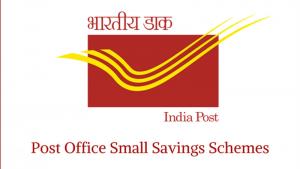Key Advantages & Features of Health Insurance Policies in India
The cost of healthcare in the modern days is increasing at a crazy rate while one’s earnings do not seem to match up that level. A patient looking forward to availing frequent health check-ups may no longer be able to bear the expenses associated. A comprehensive health insurance comes packed with features that can assist a person in managing expenses associated with medical emergencies and also with preventive healthcare. Understanding the following features can make purchasing a medical insurance policy easy:
- Cashless Treatment: Every medical insurance organization has tie-ups with various nursing homes and hospitals across the country called 'empanelled hospitals'. If you are admitted to one of these, you don’t need to pay anything. You only need to mention your policy number and everything else will be taken care of by the hospital and your insurer. This type of plan is preferred because there is no stress of claim reimbursement and arranging documentation. However, if your expenses go beyond the sub-limits specified by the insurance cover or marked as “not covered” by the provider, then you will have to settle it directly with the hospital. Another important thing to remember is that cashless Mediclaim is not available if one gets treatment at a hospital which is not a part of the hospital network of the insurance provider.
- Coverage of Pre and Post-Hospitalization expenses: This feature of a health insurance policy takes care of both pre and post-hospitalisation fee. It takes into account the costs incurred during a certain number of days both prior to and post hospitalization for a specified period from the date of discharge as part of the claim, provided the expenditures are related to the disease/sickness.
- Ambulance Fee: The person is free from burden of transportation fee as it is borne by the insurer. This is an add-on benefit and you should opt for it while purchasing medical insurance.
- No Claim Bonus: NCB (or No Claim Bonus) is a bonus provided to the insured if the no claim has been filed for any treatment in the previous policy year. The reward can be offered either as an increment in the sum assured or as a discount in the premium cost. You can avail this advantage on policy renewal.
- Medical Check-Up: A Medical plan entitles the insured to receive regular medical check-ups. A free check-up is provided by few insurers, provided you have a good history of no-claim bonus.
- Room Rent in Your Health Insurance Sub-limits: A health insurance policy may have various sub-limits associated with it; room rent is one of those sub-limits. General Insurance Companies provide you with a maximum coverage up to the sum assured. However, they can deliberately trim down their liability by introducing the sub-limit clause in the coverage for hospital room rent.
A sub-limit on room rent in case of hospitalization works on per day basis. For instance, if your medical insurance policy covers your daily room rent up to a maximum of Rs. 3,000 and your room costs you Rs. 5,000 per day, then you will have to pay the remaining Rs. 2,000 out of your own pocket. Besides, room charges are directly associated with the type of room you are availing, i.e. a single room or on a sharing basis. Everything else is calculated proportionately.
If the total cost incurred for your treatment at the hospital is Rs. 5,00,000, the table shown below illustrates the proportionate expenses that are expected to be borne by your insurer and you, respectively.
|
Sum Assured by Your Policy (in Rs.) |
5,00,000 |
||
|
Room Rent as per Sub-Limit (in Rs.) |
3,000 |
||
|
Room Rent Per Day (in Rs.) |
5000 |
||
|
Room Availed at the Hospital (in Days) |
10 |
||
|
|
Actual Hospital Bill (in Rs.) |
Reimbursed Amount (in Rs.) |
To be Borne by You (in Rs.) |
|
Room Charges (in Rs.) |
50,000 |
30,000 |
20,000 |
|
Doctor's Fee (in Rs.) |
20,000 |
12,000 |
8,000 |
|
Medical Tests' Cost (in Rs.) |
20,000 |
12,000 |
8,000 |
|
Operation/Surgery Cost (in Rs.) |
2,00,000 |
1,20,000 |
80,000 |
|
Medicine Cost (in Rs.) |
15,000 |
15,000 |
0 |
|
Total (in Rs.) |
3,05,000 |
1,89,000 |
1,16,000 |
In this case, the total cost borne by you is Rs. 1,16,000 out of the total expense incurred, i.e. Rs. 5, 00,000. Thus, make sure you choose wisely if you want any such sub-limits in your health insurance policy.
- Co-Payment: According to this feature, you can lower the cost of your health insurance. Medical insurance plans offer co-payment option that pre-defines the voluntary deductibles which have to be borne by the insured. So, in the event of a medical exigency, some amount is paid by the customer and the rest, by the provider. Co-payment is a cost-sharing requirement under a health policy, which states that the organization or the person will bear a certain share (in percentage) of the total admissible cost. However, the co-payment option does not have any effect on the sum assured. It allows you to reduce your premium to a certain extent (subject to the insurer and insurance policy).
- Tax Benefits of Health Insurance: Health insurance policies entitle you to receive tax benefits under section 80D of Income Tax Act, 1961. The premium you pay towards insurance plans for yourself or your family members, get you a tax rebate, irrespective of whether they are dependent on you or not. The tax benefit offered, with respect to the premiums, is subject to the age of the person and there is a cap on the maximum benefit that can be availed. You can save a max up to Rs. 25, 000 in taxes a year unless your age is above 60 years. If your age is above 60 years, then this cap of maximum tax benefit increases to Rs. 30, 000.
If you are paying the insurance premiums for your parents as well as your own, then you are eligible for tax exemption up to Rs. 55, 000 a year under section 80D, provided your parents are senior citizens.
- Health Insurance by Employer: More than 80% of employers in today’s age provide health coverage to their employees. The health insurance offered by an employer covers hospitalization expenses of the employee and his/her family including spouse, children or parents. It is a wise decision to opt for the mediclaim offered by your company as you need not pay any premium. This comes under a group health insurance policy and the premium is paid by the employer, based on the group size and the opted benefits.
However, it might be that you feel your employer’s mediclaim policy is insufficient to fulfil your medical needs. Also, what if you change your job? You will no longer be a member of this plan once you leave the organisation. Hereby Hence, it is necessary to understand the policy terms thoroughly. You can communicate with the HR department regarding what’s covered and what’s not in your health insurance. Mostly, we have observed that employees are more than satisfied with their company providing health insurance, only to find out later that the plan is not sufficient. So, before it’s too late, make your call!
- Third Party Administrators: The TPA concept is the brainchild of Insurance Regulatory and Development Authority of India (IRDA), to assist both the insured and the insurer. While it benefits the insurer by reducing their overheads or administrative costs, fake claims, and claim ratios, the insured, too, enjoy improved and fast insurance services.
TPAs are an important players in the sector of health insurance. They have the capacity to handle all or a portion of the claims related to mediclaim insurance. They have tie-ups with the health insurers or self-insuring companies to manage services such as premium collection, enrollment, claim settlement and other administrative services. Often, hospitals and insurance companies organizations outsource health and insurance-related responsibilities to lower their burden. Similarly, an employer may prefer to provide claim resolution of the group health insurance policy via a TPA to manage various aspects of an employer-funded healthcare policy.








